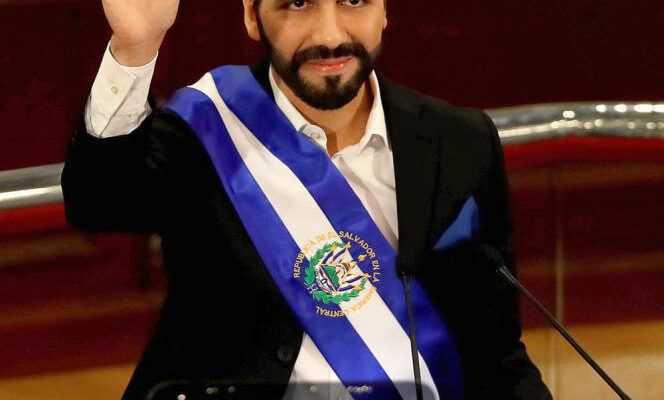Cryptocurrency legalizer
It took less than two hours for the Legislative Assembly of El Salvador, Wednesday, June 9, to vote for the bitcoin law, which makes cryptocurrency one of the country’s official currencies, along with the dollar. It was on Twitter that the head of state, Nayib Bukele, a young outsider who came to power in 2019 at the age of 37, had announced just three days earlier his intention to send a bill to parliamentarians. . Even before knowing the outcome of the vote, he changed his profile picture: from now on, laser beams come out of his eyes, with reference to the community of cryptocurrency users. In a few hours and a few tweets, the leader managed to become again “The coolest president in the world”, as he had proclaimed himself, and to make people forget the authoritarian excesses of which the opposition accuses him.
Slinger in politics
Former director of the family advertising agency, Nayib Armando Bukele Ortez comes to politics through the Farabundo Martí National Liberation Front (FMLN, left). Elected in 2015 mayor of the capital, San Salvador, he is renovating the city center, which he transforms into a trendy district. Its popularity is soaring. Very critical of his party, he was excluded in 2017. The opportunity for him to run for the 2019 presidential election as “independent” wishing to put an end to the bipartisanship of the FMLN and the Arena (right) , who shared power for thirty years. Baseball cap screwed inside out, black Perfecto, jeans and an impeccably trimmed beard, he surfs the population’s disenchantment with traditional formations, promises to put an end to corruption and is elected from the start. first round.
Defender of freedoms
Very quickly and without bothering with formalities, the millennial president fired dozens of officials he deemed unnecessary or corrupted by simple lapidary tweets. Without a majority in the Legislative Assembly, he fought all year round to impose his measures. On February 9, 2020, he arrives in the precincts of Congress, surrounded by soldiers armed to the teeth, to vote for the budget for a security plan. And, when the Constitutional Court ordered him to stop the detentions “Forced” during the pandemic, he accuses her of threatening the “Health of Salvadorans” and refuses to comply. During the Covid-19 epidemic, he does not hesitate to send recalcitrant people who do not respect confinement in unhealthy detention centers.
Parliamentary Putschist
Almost two years after coming to power, Salvadorans rewarded in the legislative elections for the effectiveness of their fight against Covid-19 and against crime. His party, Nuevas Ideas (NI), obtained absolute control of the Assembly on February 28. Within an hour of his inauguration, the 1er May, this new Parliament dismisses the constitutional court as well as the general prosecutor. A real ” Rebellion “, according to the opposition, denounced by the international community.
On June 4, the new prosecutor announced the dismantling of the International Commission against Impunity in El Salvador, wanted by Nayib Bukele in 2019, but which was beginning to take a little too close interest in those around him. Will the bitcoin law succeed in giving the president a lasting image of a modern and innovative reformer that he had managed to forge himself before his election? In El Salvador, many doubt it.
